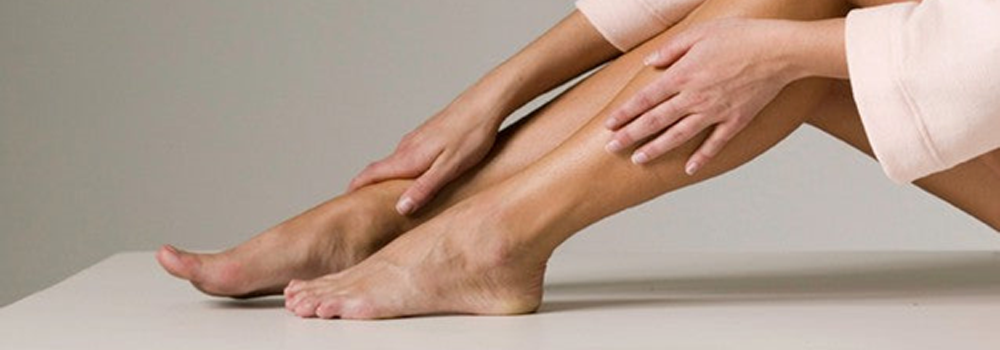How to Combat Nighttime Neuropathy Pain

Restless legs, burning pain, tingling in the toes, these are just a few of the peripheral nerve symptoms experienced by over forty million adults in the United States. The distraction of these symptoms makes it difficult to focus during the day but imagine trying to get a good night’s sleep when you have the urge to kick or move your legs every couple minutes.
For anyone who has ever experienced any peripheral nerve symptoms I'm sure you may have noticed that the symptoms get worse at night.
Have you ever wondered why this is the case?
Neurological conditions and nerve disorders are some of the most common conditions in which the symptoms actually increase throughout the night. This increase in symptoms leaves individuals in a state of anxiety and insomnia - both of which only further contributes to these symptoms.
Now, the reason nerve symptoms are worse at night has to do with a few factors including:
- Temperature, especially cooler temperatures. Most people sleep in a cooler room and our body temperature decreases when we sleep. The thought here is that damaged nerves have an increased sensitivity to temperature changes, which can heighten the sense of neuropathy.
-
Stress and anxiety.The mind body connection is powerful with stress being one of the best examples demonstrating this connection. Stress and anxiety can feed into and amplify pain signaling. When we are stressed, we often change the way we breathe (more shallowly) which has a direct correlation to our perception of pain. Shallow breathing is often called “allodynia breathing” or pain breathing.
- Attention vs. Distraction.Our attention level can influence how we perceive pain. During the day we can often stay distracted and busy, which decreases our ability to notice the pain. At night, when we are trying to fall asleep, it is much easier to become obsessed with the pain or fear that the pain will return.
***
So, what can you do if you are experiencing nerve symptoms and are tired of them keeping you up at night?
Below is Podiatrist and Naboso Founder, Dr Emily Splichal’s, go-to nightly routine for combatting nighttime nerve pain. She advises her patients to do this every night for the greatest results.
Step 1. Dry brushing & lymphatic massage. Give a boost to your circulation and lymphatic system with this simple technique. Using a natural bristle brush, Dr Splichal recommends brushing the skin in the direction of the heart for approximately 1 minute before taking a hot bath or proceeding to Step 2.
Step 2. Epsom salt baths & Magnesium spray. Magnesium is a crucial mineral to every organ in the body and has been shown to benefit muscles and nerves. Whether you get magnesium from an Epsom salt bath or you spray it topically, any form of magnesium will help relax muscles and nerves. If you opt for the topical magnesium spray Dr Splichal recommends spraying only on the feet as it can sometimes cause itching.
Step 3. Peppermint Oil. This essential oil provides an analgesic and cooling effect when applied topically or added to a foot soak or bath. The menthol contained in peppermint oil naturally warms the skin and muscles to improve circulation in the area of numbness or discomfort. If adding to the bath, Dr Splichal recommends starting with 15 drops and increasing based on comfort level. If adding topically, Dr Splichal likes to mix with Step 4.
Step 4. Topical CBD Cream. CBD oil is all the craze in the medical community with some promising research around the efficacy of topical CBD and neuropathic pain. This soothing cream promotes a healthy anti-inflammatory response in the soft tissue and muscle and can improve circulation in the affected area. Dr Splichal reminds all patients that not all CBD products are created the same and therefore her go-to CBD cream is by PRoZE. She has personally used this herself during pregnancy to treat restless leg syndrome.
***
One last great reminder as you begin your nighttime routine - try to stay calm and relaxed. Integrate relaxing music when taking a hot bath or meditating as you start to fall asleep. The nervous system is a complex system that is highly influenced by our emotional and physiological well-being.
To learn other great tips on nerve health please visit www.naboso.com